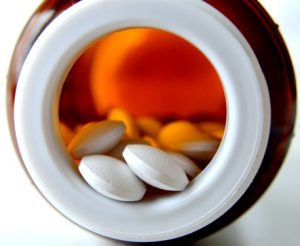
Although many of us believe that if something is good for you, you should just take more of it, that is not the case when it comes to vitamin D. Although the exact dangers of excess vitamin D intake aren’t completely understood, one study claims that excessive vitamin D can lead to calcium build up in the blood.
But why are Americans taking more? It may be because there is a large concern that we simply aren’t getting enough of it. Vitamin D is an essential vitamin for strong bones, so as the population ages and concerns about maintaining strong bones rises, vitamin D supplementation increases.
Too much vitamin D
Our bodies do produce vitamin D naturally when we are exposed to natural sunlight, but for those who live in areas where sunlight is limited, they feel the need to take vitamin D supplements to compensate. Furthermore, some foods also contain vitamin D, but once again, many Americans are not eating well-balanced meals that include these vitamin D-enriched foods.
Registered dietician Samantha Heller explained, “Our bodies are designed to get the bulk of our vitamin D from the sun. However, the use of sunscreen—a necessary and important step in the prevention of skin cancers—indoor jobs, less outdoor activities, aging, and obesity are just some of the reasons so many of us have low levels of vitamin D.”
The problem now is that people have heard the warnings of low vitamin D and now supplement the sunshine vitamin in high amounts.
It’s important that before starting any new vitamin or supplement, you speak to your doctor about the potential risks it may cause. Although most vitamins are safe to take, you want to ensure you are getting the right amount and not overdoing it. It is also a good practice to be tested first to see where your levels are at. Supplementing because you believe you have a deficiency when in fact you don’t can be harmful in the long run.